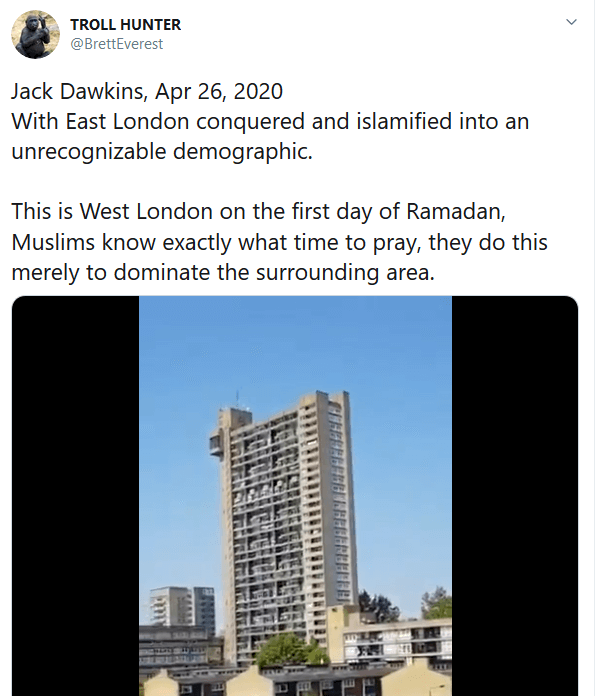Islamic State supporters jailed for sending money for fighters
Two “committed” supporters of the so-called Islamic State group have been handed substantial jail sentences for sending thousands of pounds to help fighters in Iraq.
Ayub Nurhussein, 29, and Said Mohammed, 30, admitted funding terrorism by transferring £2,700 in three instalments via Denmark between April and July last year.
Chicken shop delivery worker Nurhussein, of Urlwin Road, south-west London, also pleaded guilty to four charges of having terrorist bomb-making manuals and three of sharing grisly IS propaganda by WhatsApp to his landlord.
He was handed an extended sentence of 13 years – nine and a half years in prison with a further three and a half-years on extended licence – for possessing the terror documents.
He was also jailed for seven years and three months for terror funding and four years and six months for the dissemination charges, with all the sentences to run concurrently.
Mohammed, from Longsight, Manchester, whose contact in Iraq was said to be connected with the IS hierarchy, was jailed for five years and three months.
The Old Bailey heard that both defendants were Eritreans who had sought asylum in Britain.
Nurhussein had succeeded but Mohammed, who came into Britain via a refugee camp in Calais in 2008, was refused leave to remain and lived in the UK illegally.
In 2012, Nurhussein was jailed for 42 months for robbery with an imitation handgun.
Prosecutor Alistair Richardson said the defendants became “deeply radical” and had supported IS in whatever ways they could.
He said: “They wished to travel to Islamic State territory to join them. From the United Kingdom, the two of them, together, offered their support financially.
“They arranged for the provision of, and provided funds for, their Mujahideen, or fighter, brothers, who remained in Iraq fighting for that organisation.”
The pair hatched a plan to send money, after Mohammed’s contact in Iraq, named only as Wassim, urged him to help raise funds from “brothers from abroad” to support IS efforts.
Wassim told him: “The situation is bad, my brother. The situation is bad at all levels in Iraq.
“If there are brothers… that would still give support, tell them this is a time of seriousness and this is a time when the Mujahideen (fighters) really need you.”
Mr Richardson said Wassim arranged for a go-between in Denmark to enable money to be sent to IS with “no problems”.
On April 20 last year, a transaction of £1,300 was made from an account in Manchester to a Western Union bank branch in Copenhagen.
A second transaction of £599.19 was made by Nurhussein on June 5 to the same bank.
On July 2 the process was repeated, with Nurhussein transferring £800 to the Danish bank.
Sentencing on Friday, Judge Rebecca Poulet QC said: “Based on all the material I have seen, I conclude that both men have deeply held radicalised beliefs and that they were and possibly still are committed to the cause of the proscribed organisation Islamic State.
“It is quite clear that both men were wholehearted supporters of this terrorist cause and that both wished the funds to go to support the fighters of that organisation.”
The “most grave and alarming” aspect of Nurhussein’s case was his possession of documents setting out how to make explosive devices, the judge said, adding: “This is particularly so when I view it in the context of his other activity and his beliefs.”
The IS propaganda videos he shared were professionally produced and showed the beheading and execution of enemies of IS, encouraging people to the terror group’s cause, she said.
The judge said Wassim appeared to be associated with “central figures” within IS and the money was intended to assist activities to endanger life.
Even though a psychologist had found Mohammed to be “easily compliant”, the judge found he was “committed to the cause of IS and seeking to widen the group of financial supporters for the organisation at the behest of his contact Wassim”.
Detective Superintendent Will Chatterton, head of investigations at Counter Terrorism Police North West, said: “Today’s result demonstrates the strength of being part of a Counter Terrorism network that spans the UK. The joint work during this investigation ensured a terrorist cell was disrupted and that those involved faced justice.”
Commander Richard Smith, head of the Met’s Counter Terrorism Command, said: “I am very pleased with today’s sentences.
“The Met works with other police forces and security services to provide a counter terrorism network, both at home and abroad, whose strength and effect is continually felt by those who conspire to commit acts of violence and terror.
“Today’s result was a direct consequence of that network. Working with our counter terrorism network colleagues in Manchester, we quickly identified the activity of these two individuals, who contrived to get money to Daesh, and have brought them to justice.”
The post Islamic State supporters jailed for sending money for fighters appeared first on Faith Matters.
Categories: Ayub Nurhussein, counter-terrorism network, Islamic State, News, Said Mohammed




